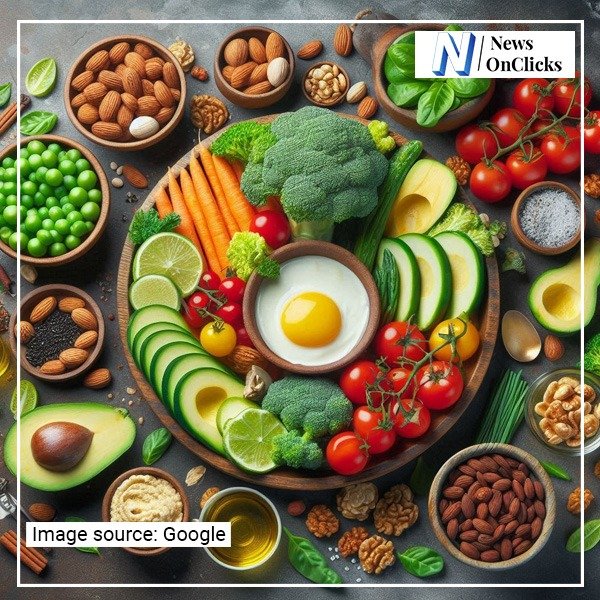
The vegan and plant-based food sector has seen significant changes in recent years, with a shift in consumer preferences and evolving shopping habits. As we approach 2025, experts are predicting that this industry will continue to grow, but only if manufacturers adapt to new consumer demands. The most pressing challenges include rising costs and the need to improve the authenticity of flavors and textures. However, despite these obstacles, analysts remain optimistic about the sector’s future.
This article explores the key vegan food trends to watch for in 2025, from clean labels to sustainable practices, offering insight into how the market is shifting.
The Rise of Clean Labels in Vegan Food
One of the most prominent trends in the vegan food sector is the increasing demand for clean labels. This trend is not just limited to plant-based products; it reflects a broader shift in consumer preferences for transparency and simplicity in food ingredients. Clean labels, which emphasize recognizable and minimally processed ingredients, are expected to make up 70% of the plant-based market by 2025. This is a significant increase from 52% in 2021.
Consumers today are more conscious about the ingredients in their food, seeking products that are both nutritious and transparent. As a result, manufacturers are focusing on products that provide clear ingredient lists without unnecessary additives or artificial substances. For instance, mycoprotein, derived from fungi, is gaining popularity due to its natural protein content and clean label appeal. It offers a trusted, sustainable protein alternative that resonates with health-conscious consumers.
Reformulation for Better Taste and Texture
In line with the clean label trend, reformulation of plant-based products is becoming more common. Consumers are seeking products that not only meet their dietary preferences but also offer an authentic eating experience. This has led to changes in the ingredients used in plant-based food manufacturing, with a focus on improving texture and flavor.
A key example of this reformulation process is the removal of methylcellulose, a controversial ingredient once widely used in vegan products. Perceived as unnatural by many consumers, methylcellulose is being replaced with more desirable ingredients such as plant proteins, fibers, and starches. These alternatives help manufacturers create products with improved texture while keeping ingredient lists clean and transparent. This trend also makes it easier for producers to scale up production without needing to invest in costly retooling of manufacturing equipment.
Sustainability: A Key Factor in Consumer Decisions
As environmental concerns grow, sustainability has become a crucial consideration for both consumers and manufacturers in the vegan food industry. Plant-based products are often viewed as more environmentally friendly than their animal-based counterparts, as they tend to generate fewer greenhouse gas emissions and require fewer resources to produce.
However, consumers are becoming more discerning about the specific environmental benefits of the products they purchase. Manufacturers are responding by developing plant-based foods that align with sustainability goals, focusing on ingredients that are not only plant-based but also sustainably sourced. As a result, there is an increasing demand for holistic clean label solutions that prioritize both nutrition and environmental impact.
Improving Nutrition in Plant-Based Foods
Another significant trend for 2025 is the emphasis on better nutrition in plant-based food products. As the demand for vegan and plant-based options grows, so does the need to enhance their nutritional profiles. Consumers are increasingly health-conscious, looking for plant-based foods that not only meet their dietary preferences but also provide essential nutrients.
One of the key areas of focus is improving protein quality. Many vegan products rely on incomplete plant proteins, which do not provide all the essential amino acids. To address this, manufacturers are turning to complete protein sources that offer a more balanced nutritional profile. Additionally, companies are working to increase fiber content while reducing unhealthy saturated fats. Fortification with essential micronutrients such as iron, zinc, and vitamin B12 is also becoming common, as these are nutrients that are often lacking in plant-based diets.
By using innovative ingredient combinations, manufacturers are able to improve the nutritional value of their products without relying on synthetic additives. This approach helps maintain the clean label appeal while offering a more nutritionally balanced alternative to traditional meat products.
The Future of Pulses and Beans in Vegan Food
Next-generation pulses and beans will shape the future of plant-based foods. Innovators are now using lentils, chickpeas, and beans—already staples in vegan diets—in creative ways to enhance their flavor and nutritional value through recent technological advancements.
These protein-rich ingredients also provide other nutritional benefits, including low saturated fat content. Food technology experts have developed processes to reduce the bitter taste of pulses and improve their texture, making them more appealing to consumers. As a result, pulse-based products that highlight their plant origins while delivering a meat-like experience without the environmental cost are gaining popularity.
Manufacturers are also incorporating pulses as natural additives to enhance flavor, bulk up recipes, and boost the nutritional value of plant-based products. This trend caters to the increasing demand for products made from recognizable, functional ingredients that support clean-label initiatives.
Conclusion: A Bright Future for Vegan Foods
The vegan food market continues to evolve, driven by consumer demands for transparency, sustainability, and improved nutrition. Clean labels, sustainable sourcing, and better-tasting, more nutritious products will define the market in 2025 and beyond.
Manufacturers are actively responding to these shifts by leveraging new technologies to create products that meet dietary needs while aligning with environmental and health-conscious goals. By making the right strategic moves, they position the global vegan food market to grow significantly, reaching $7.17 billion in 2023 and expanding at an impressive annual rate of 19.4% by 2030. The industry’s future looks bright as long as it prioritizes innovation and listens to what consumers truly want.









